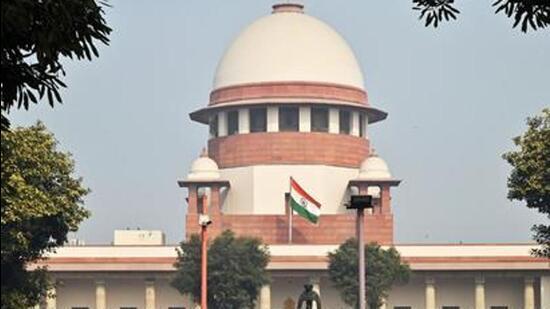
Calling someone ‘Miyan-Tiyan’ & ‘Pakistani’ not an offence: Supreme Court
In a recent verdict, the Supreme Court has ruled that calling someone “Miyan-Tiyan” and “Pakistani” is in poor taste but does not constitute an offence. This decision has sparked a mixed reaction from the public, with some hailing it as a victory for freedom of speech and others criticizing it as insensitive and offensive.
The case in question involved an 80-year-old man who was accused of hurling abuses at an Urdu translator in Jharkhand. The translator claimed that the elderly man had used derogatory language, including calling him “Miyan-Tiyan” and “Pakistani”. A case was filed against the 80-year-old man, but the Supreme Court ultimately dismissed it, ruling that the remarks did not amount to hurting the religious sentiments of the translator.
The Supreme Court’s decision was based on the fact that the words “Miyan-Tiyan” and “Pakistani” are not considered to be offensive or derogatory in the context in which they were used. The court ruled that the remarks were made in a specific cultural and social context, and that they did not have the intent to offend or hurt the translator’s religious sentiments.
The Supreme Court’s decision has been widely reported in the media, with many news outlets highlighting the controversy surrounding the case. Some have argued that the court’s decision is a victory for freedom of speech, as it allows individuals to express themselves without fear of persecution or legal action. Others have criticized the decision, arguing that it trivializes the harm caused by offensive language and sends a message that such behavior is acceptable.
The use of derogatory language against specific communities or religions is a complex issue, and one that is often debated in the public sphere. Some argue that such language is a form of hate speech, which can cause harm and perpetuate discrimination. Others argue that it is a form of free speech, which should be protected and allowed.
In this case, the Supreme Court’s decision has sparked a discussion about the limits of free speech and the importance of respecting the religious sentiments of others. The court’s ruling has also highlighted the need for increased cultural awareness and sensitivity, particularly in situations where language and culture may be used to offend or marginalize specific communities.
The case has also raised questions about the appropriate response to offensive language. Should individuals who use derogatory language be held accountable for their actions, or should they be allowed to express themselves freely? How can we balance the need for free speech with the need to protect the religious sentiments and cultural practices of others?
In conclusion, the Supreme Court’s decision that calling someone “Miyan-Tiyan” and “Pakistani” is in poor taste but not an offence is a complex and nuanced one. While it may be seen as a victory for freedom of speech, it also highlights the need for increased cultural awareness and sensitivity, particularly in situations where language and culture may be used to offend or marginalize specific communities.






